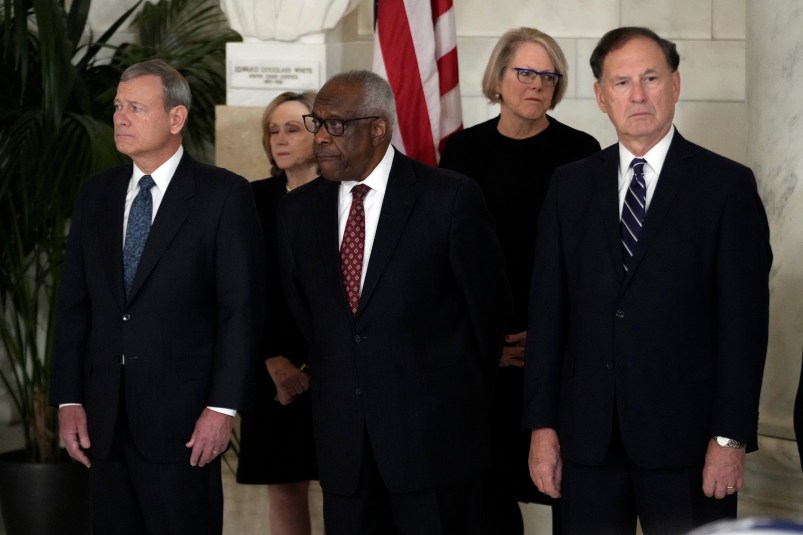TPM Reader CH on whether it’s all Foley …
You will soon post on the “is it all Foley?” question, and I wanted to submit my 2 cents in advance. Here’s the thing about the Foley scandal: it gives people space to change their minds about things. Think about when you’ve admitted a mistake or accepted someone’s knockdown argument on a topic you believe in strongly. Sure, you look at the facts and exercise your capacity for reason. But there is an emotional component too, and it’s a lot easier to change your mind when the other person, or in this case the general public mood, makes it OK for you to shift your perspective.
That’s what Foley has done–provided an emotional space within which people can reevaluate their views without having to question themselves or their previous beliefs too deeply. I believe there has been a growing sense in the country that things are going badly, very badly, on all sorts of fronts. Foley, frankly, doesn’t have much to do with that. But now it’s OK to step up and say, “Hell with it, I’m tired of this crap.” And change your vote.
I think CH is on to something here. I’d been thinking along the lines of a slightly different take. But I think we’re getting at the same basic point. To me, you look at the basic numbers going back many months and they’re simply terrible for the Republicans. There was a halt in the deterioration and then a very small but discernible rebound in early-mid-September, tied largely to the 9/11 anniversary. Among the political class that very small stabilization was very over-interpreted. Then came the NIE, more bad news out of Iraq, Woodward and then Foley.
In discussing the dynamics of elections we’re all always groping around trying to find the least inapt metaphor. But my hunch is that that late September bad news for the White House didn’t cut short a GOP resurgence. The blip was more of an Indian summer or dead cat bounce.
At the same time, Foley does seem to have been a deal clincher for a substantial number of people. Not that more than a very few people are going to consciously or affirmatively vote on the basis of Foleygate. But in our own lives we all have moments where we’re frustrated, more frustrated, passively angry and then at one crystalizing moment something clicks in your head and you say, Enough. I’m done. And then you act.
I think that’s something like what we’ve seen over the last two weeks, though we won’t be able to know for sure until after election day. There’s been a tremendous dissatisfaction in the country on many fronts. But it’s been amorphous and latent. Or perhaps better to say people hadn’t yet had to concentrate on just how they were going to act on those sentiments. Partisan identification also does weird stuff to people. For instance, is it really true that 40% of the public is satisfied with the job the president has done on Iraq? Objectively, I find that difficult to believe. But Republicans are Republicans. And for a lot of committed partisans, the Dems say No, so they say Yes. What the question in becomes somewhat beside the point. And, yes, same on both sides. My point is only that strong partisan identification props up support for things people probably don’t really, in their heart or hearts, support.
In itself, Foleygate isn’t going to drive many people’s votes. And even fewer will admit that it has in polls. But I think Foley has provided a collective gut-check moment for the country, when perhaps a critical portion of the country has said, Enough. it’s not about Foley. It’s really about everything that has come before. But it’s allowed people to step back, take in the whole picture and say: No, I’m done.






